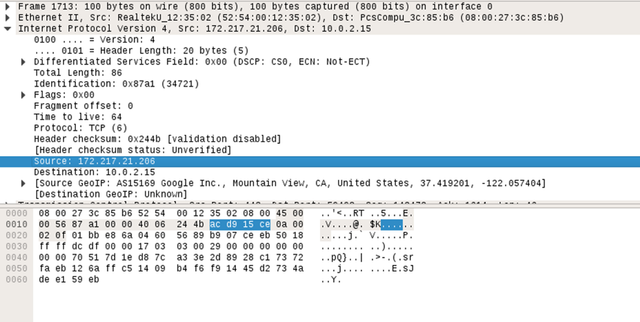A little Introduction to network packets 1
So, what are network packets and protocols? A network packet is a unit of formatted data that is used for transmitting data over a network. Packets follow so called protocols.
A protocol is a set of rules which defines HOW two computers communicate while the packet contains WHAT will be communicated.
Imagine people and their communication. Lets say you are at a party and you dont know a person. In general you will introduce yourself by stating your name and via a handshake for example. After that happens you will in general have some bullshit small talk about the weather or some stuff like that.
In this scenario the stating of your name and the handshake are the agreed protocol while your small talk is the data packet so to speak.
I hope that makes the concept a little bit clearer. If you don‘t get it now dont worry, because we will look at those packets with a tool called wireshark later on.
Remember guys that this is just a short writeup of the underlying communication of our beloved internet. If you want to know more i would recommend to look up the so called OSI-Model.
IP Packets:
Each IP-Packet consists of control information(IP-Header) and the data it delivers, which is called the „payload“.
The concept is kinda similar to packets you send or receive via your post office. The control information is like the adress written on the packet and contains several data like source IP and the destination IP.
The payload is equal to contents of the packet. In the case of the IP-Packet the data is the TCP or UDP packet which we will cover next.
You can find an overview of the IP-Header fields under https://en.wikipedia.org/wiki/IPv4#Header. Below is a screenshot of packet captured with Wireshark that shows the IP-Header fields.

In the picture above you can see the Source IP highlighted. Below that is the Destination-IP. Don't bother yourself with the Ethernet frame above the IP-Protocol. We will cover that too in the future when we get to ARP-Spoofing which is a way of capturing packets that you are not supposed to capture ;)
See y'all
Not a bad breakdown. I'm working on my CCNA right now and going over some of this stuff again. Always good to find other people who are in the same feild!
Thanks man! Try to learn all things related to it.